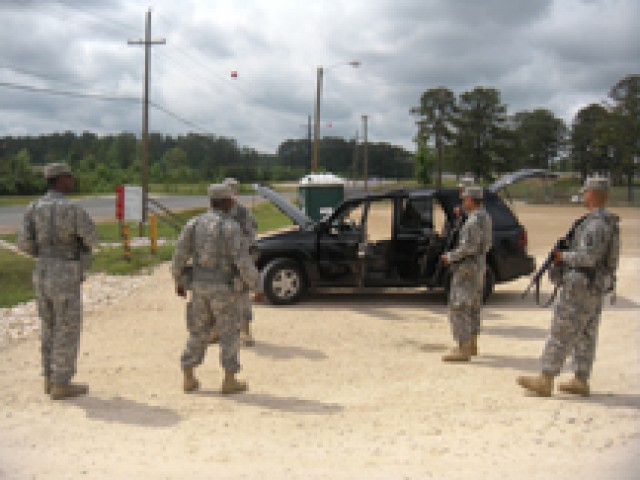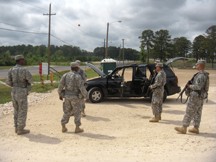FORT POLK, La. -- The 52nd Interpreter/Translator Company, 1st Battalion, 353rd Infantry Regiment, 162nd Infantry Brigade, conducts sergeant's time weekly to provide tactical training. Topics focus on fundamental skills ranging from patrolling techniques to weapon familiarization, medical tasks and land navigation.
The 52nd ITCO activated at Fort Polk in March. The company is one of only two throughout the Army that provides native heritage translation, interpretation and cultural advice to Army, Joint, Special Operations Forces and select inter-agency organizations. The company fills a need to recruit native and heritage Arabic, Dari, Farsi, Kurdish and Pashto speakers into an active-duty Army, Army Reserve, National Guard or Individual Ready Reserve status.
In preparation for future deployments, sergeant's time training provides a foundation in which common skills can be practiced with language integrated into the training. The goal is to increase Soldiers' translation and interpretation skills while conducting routine and basic tasks. This helps ensure that they can focus on their role as translators and interpreters downrange without unfamiliar environments and mission demands.
During the most recent training, Soldiers taught classes on establishing and conducting a traffic control point, or TCP. After the instruction portion, Soldiers put their new knowledge into practice during an evaluation using a mock TCP. Soldiers learned the fundamentals of how to construct a TCP, which included choosing an appropriate site, obstacles to be placed, and questioning of the drivers to include visual keys that could mean suspicious activity.
"We conducted three phases of the TCP. Each time, the training got progressively harder, which made communication and organization more difficult," said 2nd Lt. Roney Jun, 2nd Platoon leader. "The Soldiers did well and improved with each phase."
Additionally, the instruction portion allowed the junior Soldiers to work on their communication and teaching skills in front of their peers. One Soldier read off the tasks and requirements from an easel and the other translated for the group of Soldiers. Sgt 1st Class Mark King said, "The training is good. A lot of the Soldiers are new to the Army and this helps them become familiar with Army terminology." The training uses the Soldiers' translation skills to become familiar with military terminology that can be difficult to understand and translate on the spot.
The training provided on-the-spot practice for the Soldiers who are required to translate/interpret the class instruction into their native language. It focuses on their translation and interpretation skills that will be used when the Soldiers deploy. Once deployed, the sergeant's time training will help prepare them to operate in a given operational environment.


Social Sharing